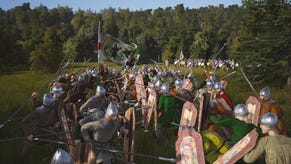Why Sony passed on Natal tech
Unreliable, expensive, too similar to Eye.
Sony rejected 3D camera technology for motion control - similar to that used by Microsoft in its Natal device - because it was unreliable, expensive, and its gaming applications were too similar to those already possible with the existing PlayStation Eye camera.
That's according to Sony America R&D bod Dr Richard Marks, appearing on the Engadget Show to demonstrate PlayStation Move (as summarised by PlayStation LifeStyle). Although a fan of the technology itself, Marks said that Sony felt it didn't make enough "new experiences" possible to justify its additional cost over the Eye.
"We tried a lot of different 3D cameras. I love the 3D camera technology; personally, I like the technology part of it," he said.
"We worked closely with our game teams at what it would enable, and it enabled making the things we already did with EyeToy more robust, but it didn't really enable as many new experiences as what we were hoping it would enable, so it made the things we were already able to do a little bit more robust - which is good - but it adds a lot of cost and it didn't enable some of the other experiences we wanted to achieve."
He added that Move - which, alongside other motion-tracking technologies, uses the Eye camera to follow the lit, coloured balls on the controllers - was more reliable in low-light conditions.
"Sometimes a tech demo doesn't translate into a product very well... the lighting in the room has to be good enough for the camera to see the colour reliably and that makes for a difficult product when you don't have a control over those variables," Marks said.
"And with the 3D camera, it's a little bit similar in that we found that there were some things we wanted to be able to do, and sometimes it wouldn't work reliably for what we wanted to do."








